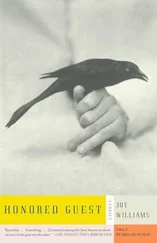“God’s begun a state of grace in me
I’m the only one in town.”
The sea wind carries such scraps of conversation, nonsense rhymes, dream images, for miles. Everything is echo. The townspeople are ashamed of the smallness of their thoughts but they are pleased that her actions belie the lie. She is a child, nothing more, small, dependent and without resources. We are justified not without and yet not by our works is the base they build upon. Is that not what has always been taught? And has not the Reverend himself said, scornfully, coldly, so that one could almost hear in his ears the frozen whistle of the fall to hell, “Works, a man get to heaven by his works! I would as soon think of climbing to the moon on a rope of sand.” So they needn’t concern themselves with their thoughts about the child. They are free to think them. The Reverend continues to remind them that they are worldly free. They are dismissed. Perhaps they are truly saved and safe. The child dismisses them with the gaze of her father. She is meek and even pretty, but unruly, a bit menacing. Sometimes her face looks withered as a crone’s.
But her mother is dead, her sister is gone, transported so precisely that summer day, out of the moving car into the giant oak, that historical oak was it not? the one that had been brought over from England in a snuff jar? Yes, it could be the burden of death that the very young can assimilate but not bear, it could be merely that that makes the child appear so singular, so remote. And then the mother, the Mrs. being so odd at the end, bearing that new baby with such fury, being so unseemly, almost deranged.
Yes, they had not seen how any good could have come of her rage. For something had been in evidence, even to the town’s slow heart. Something desperate and angry and even afraid. She was after something nameless, the Mrs. Jackson, or had already found it. How, they couldn’t say. Where, they couldn’t imagine on this simple island where everything lay like silhouettes flat against the sky. But she said the queerest things at the end, things that had no substance. It was as if already she had one foot in the other world. And half her mind as well.
SHE SPOKE OF HORRORS. She spoke to Mrs. Morrissey of giving her heart to horrors. This was difficult. For some reason, the Mrs. had chosen Mary Morrissey to confide in although Mary had once been Catholic and drank and couldn’t be counted on to keep things straight. Had she selected someone more dependable to speak to, the town might have made more sense of it. It was the burden of a woman bearing, they supposed. She moved with hatred, moving hurriedly, heavily off through the ice, her chapped face wrapped up in scarfing. These were the only times they saw her in the last months, walking recklessly, out for the air, they supposed, but walking so quickly, as though she had a destination. But she visited no one and the boundaries of the town were the sea. Once, she had seemed quite ordinarily happy. Quite social. Enthusiastic. Kept herself up quite a bit more than the other ladies would care to. After the daughter’s death, though, the only habit she kept was churchgoing. Three times a week for prayers and twice for Sunday service. Each time she left, she shook the Reverend’s hand, her eyes averted, cast off into the umbrella stand. Except for these moments, she was never seen with her husband. He was always with the Lord.
The Reverend seemed such a loveless man. A dedicated man certainly. Wedded to God’s work. But not one to give a woman comfort. They could not imagine … but their thoughts were frivolous, base. They had been shocked when they learned the Mrs. was pregnant. At first they had believed that their feelings were those of dismay, of fear for her well-being, but then they admitted to each other that they were oddly shocked.
She was in the seventh month when she died. She had taken to bed shortly before then, receiving no visitors (had it been her request or the Reverend’s? — the question didn’t matter — they were all barred, even Mary Morrissey, who undoubtedly would have been disappointing in her information anyway, having been married three times and divorced once, and having a penchant for unpleasant generalizations). No one could recollect the Mrs. ever looking as poorly as she did lying in the coffin. They can’t understand what did it. A complication of pregnancy . They don’t inquire further. They misunderstand medical terms. Their vocabulary is not one of disease. Nor is it one of health. What they do, always, is a compromise between death and living. They do know that no doctor was called. She died at night while the Reverend was sleeping, while the little child Kate was sleeping. They also know that the fetus was not expelled. It was tight within her still when she was taken away. Snug as a core in an apple. They do not like to discuss it really. It is not that they are not curious or bereaved or amazed. It is just that they lack the proper terms. They are embarrassed by their own references. The death isn’t quite acceptable. It isn’t quite … respectable.
They shuffle past the coffin, observing. Hair puckered up in tight ringlets. Not her way. A great deal of gray. They hadn’t noticed. But very natural. With good color. Lipstick, which she seldom wore, prettily applied. A good job the man had done. Came over on the ferry with the equipment of his trade and set up in the parish house. Realistic. She looked as though she would get right up and walk among them, blinking her large mortified eyes, her hands spilling over them, making invitations and promises as she always did. She had loved to entertain, although the townspeople were not familiar with the accepting of hospitality. Once she had been giddy, nervous, eager. Twice monthly, she opened the doors of the parsonage, the finest house in town. They could depend on that like on the sun rising … the tea and cookies served in the pleasant rooms of the first floor, “strings” on the record player which they didn’t care for. The afternoons began well but ended rather badly. One of the men would make a crude comment or break a cup. Fingerprints on the clean windowpanes … The talk would die down to almost nothing. And she would seem close to tears. She was always high-strung and expensive-looking. Once she had been from the city. A flawless complexion, a charming laugh. All gone now. Emptied her essence somehow. The mysteries of undertaking. Who would want to? In the family’s footsteps.
A lovely job . Though it was not the woman they remembered. She had lost an extraordinary amount of weight. Her head was quite wasted. And her skin seemed much too smooth. After all. He must have poured the makeup on. Stomach flat as a frying pan, for the unborn child had been removed and placed in a smaller box. Such a tiny coffin, like a jewel box. She had carried the baby full and low … wasn’t that to mean a boy? The word was that it had been a boy.
“Called back,” said Mrs. Parrish, whose husband was in feeds. “Called back because the loving Lord couldn’t bear to have him leave His care, not even for man’s brief lifetime.” Her good eyes shook out tears.
The child did not even have the opportunity to be born dead. As the Reverend said, for he was a man of order and belief, even though he spoke of his own … “too imperfect even for that.” Sickly harbored. So sad. With its little untried soul.
“My wife,” the Reverend said, “had unnecessary thoughts at the end. You could tell she was sick. You could tell that something wicked had her in its grasp.”
They all tipped slightly over the coffin, their hands twitching behind their backs. A button on the deceased’s blouse was dangling, the thread all ravelly. They all had a desire to push it back in place. Such carelessness was inexcusable. All pride gone out of craftsmanship ever since the war. The blouse was brown silk, rather old, the thread of the buttons was black. Two strands of beads; one of glass, the other of clay. Like an Indian curio in a novelty shop. Almost a toy. A child’s necklace, for dress-up. Perhaps the child had been responsible for this. A lovely gesture, though rather lurid. Motherless Kate. Makes you cry. Looks like neither the poor Mrs. nor the Reverend except in bearing. Little stranger. Black wool skirt on the deceased. A full skirt, as though for dancing. A plastic belt. Red and white pumps. Newly shined. The darker polish somewhat lopping over its bounds. The Reverend had picked out the clothes. You know the way men are. No sense of a woman’s image. If the Mrs. Jackson could see herself, she’d cry. She cried for less when living. Her eyes were always brimming. Just before the end.
Читать дальше












